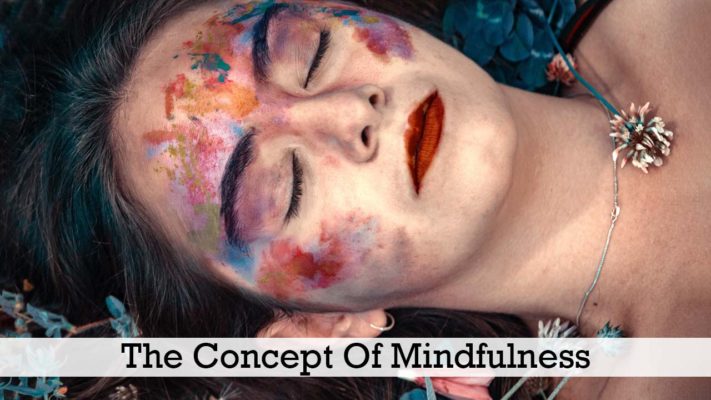
Stress And Anxiety Taking Over Our Lives
Maybe you are looking to lessen the stress and anxiety you feel on a day to day basis. Perhaps you would like to improve your health and enjoy a more restful sleep. For many of us, these are difficult goals to attain because we are experiencing more stress and anxiety than ever before. We experience daily pressure to succeed and we are self-critical when we don’t. This common day to day overwhelm is why millions of people are flocking to mindfulness.
We rush around in the daily grind of life and at the end of the day fall into bed exhausted waiting for weekends to come around. When they do, we spend our time racing the clock, stressed about what we didn’t achieve or on figuring what’s next. Mindfulness teaches us all kinds of new things like how to more calmly respond to situations and recognise our unhealthy habits. It also helps us become more tolerant and less judgemental and kinder to ourselves and others.
Fab Or Fad

It’s all the rage, especially with the Millennials. Manisha Udeshi is a holistic healer and wellness coach from Mumbai. According to her, “due to the advancement in technology and increased workload, the mind is overloaded. Mindfulness helps in ‘slowing down’, ‘connecting with ourselves’ and ‘living effortlessly’. It helps in better thinking and better response to situations.”
Sarika Satghar agrees with Manisha and discloses that since she started practising about 8-9 months back her work-life balance has improved. “I work in the stressful insurance sector and over the past few months I have noticed that I have better control over my anger, I’m more aware, more positive, and I feel contented with life.”
Mindfulness meditation is the practice of paying attention to our thoughts, emotions and experiences without being judgemental about them. There was overwhelming agreement from leaders at a ‘Mindful Summit’ in Washington DC a few years back, that those practising it experience the proven benefits of reduced stress, greater clarity of thought, deeper listening, enhanced creativity, self-awareness, more productivity, and even feelings of being a better human being.
Sudha has taken a few classes and gravitates towards this as it is universal and non-religious. She says, “The concept is that thoughts are involuntary, so you accept them without judgement and then ‘let them go’”. Venerable De Hong, a Buddhist monk with the Engaged Buddhist Alliance in Southern California adds, “Yes, it is not religious, anyone can practice it and hence it’s becoming very popular’’.
Ease Of Inculcating It In The Daily Life
We often hear about ‘positive thinking’, benefits of meditation, staying calm, giving gratitude, etc. Lots of inspirational stories and many speakers try to motivate the benefits of these. These stories are fantastic, but can it really be practised in our daily lives? Dr Amy Demyan (psychologist and professor at the University of La Verne has been practising and teaching mindfulness to students and clinical therapists for the past 10 years) certainly feels so. She expresses: “Research supports it and the benefits include frustration tolerance, increased emotional regulation and increased cognitive flexibility.”
Ven. De Hong also teaches men and women prisoners and shares: “In meditation, they bring up the past events, become aware of them and then release them. This contributes to letting-go of rage and pent-up anger.”
Is it so easy and life-altering to change thoughts ingrained in our psyche over the years?-thoughts ranging from self-doubt, loneliness, anger and other negative feelings that crowd through us every day? “Yes”, declares Farooq Haque, mind trainer and founder of ‘Within n Beyond’. He equates the mind to a computer – “basically put new software for perfect processing of information to get more mindful and powerful results”.
Bh Nikhita concurs that regular mindfulness meditation has made her less scattered and more focused. She is reaping the benefits of pranayama (anchoring attention on breath): “I sense an inner expansion and contentment with life, am more accepting of circumstances and am able to keep negativity at bay.”
Sai Narayan Rao, a lawyer, consciously practices another form of mindfulness- mindful eating. He says he feels more energetic and productive than ever before.
He reveals, “Earlier I ate without thinking or noticing, but since I have ‘mindfully’ started to eat, I am more aware, appreciate food more, feel the taste, and my body tells me exactly when I’ve had enough.”
What Is Mindfulness?
Professor Jon Kabat-Zinn who is credited as popularizing it in the modern context describes it as, “Mindfulness means paying attention in a particular way: on purpose, in the present moment and non-judgmentally.” Experts believe that mindfulness works, in part, by helping people accept their experiences—including painful emotions—rather than react to them with aversion and avoidance.
Dr Demyan explains it very succinctly with an example: “Initially people are on auto-pilot. I might ‘think I am a loser’ and that feels bad. But then you try ‘I am feeling like a loser’ and then ‘I am noticing I am feeling like a loser’. So, the feeling has gone from a ‘fact’ to something you just watch and notice with curiosity. This helps in shedding delusions and gaining awareness.”
A clinical psychologist from Australia, Divya Nair regularly uses mindfulness techniques in her therapies and has noticed that “it shows positive results in patients dealing with depression and other trauma”. She adds, “Several evidence-based therapies have a strong mindfulness component. And even when used as an adjunct to other traditional therapies, mindfulness is very effective.”
Ven. De Hong is, however, quick to point out that, “the results might take as less as 3 months or even up to a year to show up, but, I have personally seen that with those who persevere, it does eventually help.”
Tools Of Mindfulness
Nilofer Safdar is a life coach based out of Dubai. She helps “people be the best version of them”. In her many years of practice, she has helped a significant number of her friends achieve peace of mind, reduction in anxiety and stress and being joyful (being so peaceful that nothing shakes them) by using these mindfulness tools:
A) Body Awareness Scan– The exercise is about noticing each part of the body from head to toe one after the next and to only feel the sensations they send, but not alter them.
B) Gratitude– Find at least 5-10 new things to be grateful for every day. This can either be done first thing when one wakes up or before going to bed each night.
C) Loving-Kindness– This is an interesting tool where you first learn to be kind to yourself with positive affirmations and then towards people you like, and even towards those who challenge you and then towards the whole world. This sets off positive vibrations creating empathy and compassion.
D) Appreciation– Take ‘time-outs’ to find things to appreciate in our daily lives. This can be as simple as appreciating electricity that powers our appliances. This quickly changes inner energy making one more aware, more joyful.
E) Writing down thoughts– Write down whatever thoughts come up. Divya Bhargava Gupta states that this practice really helped her as it is “easy to write down whatever I feel as and when it comes up. It helps immensely to channel my thoughts and calm me.”
7-day Challenge
Being completely new to any form of meditation, I decided to try ‘7 days of calm’ from an app called ‘Calm’ to experience this for myself.
Day 1: A few minutes of concentrating on my breathing and trying to calm myself down. Every few seconds I find my mind wandering, but I calmly bring it back to my breathing.
Day 2: I concentrate better on my breathing- following my breath as it goes in and out is slightly better than day 1. My mind still wanders, but it is easier to bring it back to the task at hand.
Day 3: Breathing while concentrating on every part of my body from scalp to toe ensues. I breathe into each part individually trying to feel the signals they send me.
Day 4: Today’s session is about pulling out of ‘auto-pilot’ and ‘living in the moment’. This is difficult, as my mind is crowded with many thoughts and constantly wavers. But, as the session goes on, it becomes easier to bring it back to concentrate on the breathing exercise.
Day 5: The exercise on concentrating on breathing today involves taking breaks through the day to ‘do nothing’. Again, my mind wanders, but it is easier than earlier to bring it back. Breathing into each part of my body- the knots in my shoulders and back though they don’t dissolve completely, they feel softer.
Day 6: The session today is about building patience and better mental and physical health. Counting 1 as I take a deep breath in and saying 2 as I breathe out helps to maintain my focus on breathing. The first few times the mind is concentrated, but again it wavers. It requires an effort to leave the comfort of ‘thoughts’ to bring it back to concentrating on breathing.
Day 7: Today is the last day of the exercise. It wishes to inculcate being ‘aware’ and taking time out for hobbies and other leisure interests. The exercise is about breathing into each part of my body one after the next and to only feel the signals they send me, but not alter them. It is a fairly long session and as every day it is a challenge to keep my mind only on the breathing.
Verdict: Focusing only on breathing and not thinking about anything else is hard. Meditation is not something that I look forward to doing daily. But practising it this past week, I do sense a change in me, however small, but it is unmistakably there. I feel calmer and more accepting of my circumstances. It has served as a reminder for the many good things in my life, instead of only focussing on the not-so-good.
Popular Apps To Help You Out
Try some of these apps (available on iOS and Android) to calm the mind, develop concentration and increase awareness so you can relate to yourself in an objective, compassionate and skilful way.
–Calm
–Insight Timer
–Headspace
–Smiling mind
–Zen-meditation
–Simple Habit
So, are you stressed or anxious? Perhaps depressed or sad? Do you feel your life is meaningless? Do you get angry and irritable easily? Or maybe you are suffering from addictions or eating disorders? Whatever your affliction (or even if you don’t have one), if peace, calm and stability in thought are what you aspire to, then try mindfulness.














